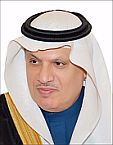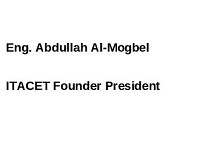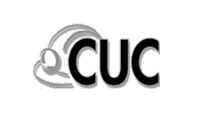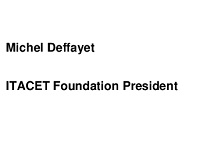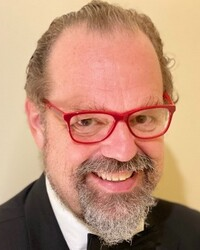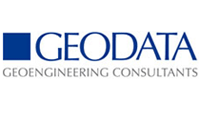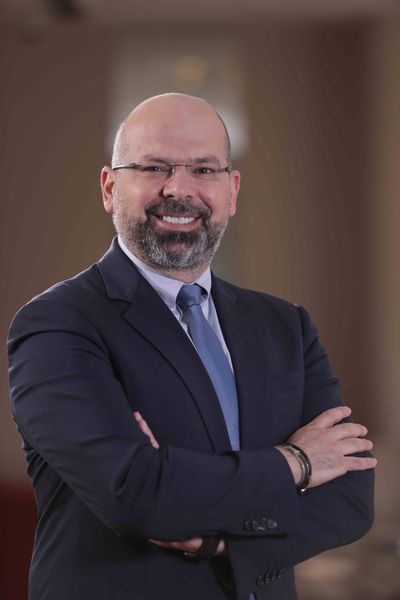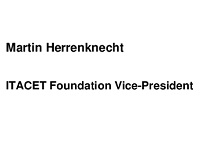
In the past 3 year since the ITA CET Foundation was founded it has been very active in reacting to a lot of requests coming from many countries and member nations of ITA to organize training sessions. There was a steady increase in the demand both in number of courses but also in regard to the technical topics to be presented.
This positive reception of the work of ITA CET Foundation as well as the ITA CET Committee has resulted in a challenge for all parties involved: programs of the courses had to be set up, speakers to be identified, the quality of the presentations to be ensured and a lot of administrative matters to be taken care of. Simultaneously adequate administrative and organisational structures and procedures within the ITA CET Foundation had – and to a certain extend still have - to be implemented to allow an efficient work while securing also a high quality of all rendered services.
All that has left only limited time to reflect over other stakeholders within the underground community beside the member nations and their needs for training and education and to come up with specific initiatives which could address these demands.
It is doubtless that such needs exist: The Tunnel Academy which was established in the context of the Crossrail project in London and which explicitly is focussing on training and education of the professionals working on that challenging project is just one example. There are similar initiatives in other countries like Malaysia, Chile etc. They all reflect the high demand of well trained professionals which can’t be satisfied adequately right now.
On the other side an growing number of requests for educational seminars and workshops for future owners and operators of underground infrastructures has become apparent. This shows the increasing urbanisation worldwide and the thus growing need for underground infrastructures like metros which become a necessity for more and more cities which have not been building and operating such networks and are looking for state of the art technologies, procedures, management etc.
And last but not least also the industry itself, the suppliers and manufactures of machines and equipment have expressed their interest that ITA CET Foundation is supporting them in training and education. Their products, materials and equipment get more and more sophisticated and complex in the way they are best applicated and used. So only well instructed and trained applicators can make the best and most efficient use of them, but also designers and consultant may need to know more about latest developments and how to specify them adequately. In this context the ITA tech committee which was established just some 15 months ago and which represents the industry within ITA has expressed very clearly what they expect from the ITA CET committee and the ITA CET Foundation. These two have taken this up and elaborated criteria and procedures on how and under what condition to cooperate with the industry.
All these are very promising sings which show that there are still various fields for the ITA CET Foundation to become active on in order to expand and offer its services to a wider range of clients within the tunnelling industry. For the ITA CET Foundation these activities are even more attractive as they are also economically interesting and will allow to build up additional funds and thus give the Foundation a larger financial base.
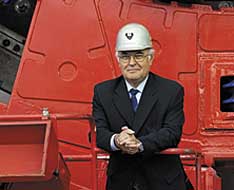
September/October 2012, ITATEC interview with Dr.-Ing. E.h. Martin Herrenknecht
Considering your leader position in the tunnelling industry, how do you evaluate the qualification of young tunnelling engineers ?
We are looking for good qualified, reliable and enthusiastic young engineers – with a passion for high tech. In our global business, it is important to sometimes being spontaneous, in order to travel, to solve problems, to be open to getting to know foreign people and cultures and to adapt to them. Although customers may be far away in terms of distance, they expect fast solutions.
At Herrenknecht, young engineers can already gain insight into large-scale international projects. It is important that they can obtain an overview of project – technical, commercial or political – parameters. Almost no other construction method is more complex and requires longer project times than tunnelling – in particular in the case of large-diameter projects. This is why it is even more important today to integrate the corporate into the academic world and university training. The ITA CET, for example, initiated this with the master programs in Lausanne, Turin and Lyon. Another major pillar are internships that increase young people’s interest and allow them to gain a realistic insight into the industry.
Why do you think specialized engineers lack theses competences and what should be done to solve this problem?
With the diploma degree in Germany engineers had a more consolidated and profound knowledge than today with the master’s degree where the topics are only briefly sketched. But what was also missing with the diploma degree and is still today with the masters, is a lack of practical knowledge and the awareness of the career prospects in our industry. Some want to work in apparently more attractive, more well-known boom industries such as the automotive, mobile telephony or energy industry.
In the tunnelling industry, you have a lot of responsibility, for example, in project management: Projects have an order volume of several million euros. Safety aspects always play an important role. Engineers participate in completely authentic and interesting infrastructure projects that bring progress to cities or regions – for the benefit of the inhabitants.
This aspect also seems not to be sufficiently addressed during academic training. This is why we should do more in order to provide more internships in the industry, which can make the transition from university to work, for the benefit of everybody - students and companies - easier after graduation.
Tell us about your decision to become a founder and an active-support member of the ITACET Foundation?
The aim was to push tunnelling technology and to enable a broader view of feasibility and implementation options in all tunnelling aspects. To commission new or proven technologies as fast as possible requires highly professional staff to be competent and reliable of all parties involved in the project.
Therefore the founders of ITACET decided to spread and promote tunnelling knowledge by organizing training programs in this field. It is important to have this support for the entire industry – contractors, engineering firms, technology and service providers. It paves the way for mechanized tunnelling technology and its advantages worldwide in order to make its advantages over conventional technology with regard to efficiency, safety, economy of time and environmental-friendliness more accessible.
Tunnel play a key role in many infrastructure projects, they cross beneath natural and artificial barriers of all kinds. Modern construction methods make it possible to build routes that run very close to ideal lines, bringing a real breakthrough for routes that would have been inconceivable in earlier times – with regard to geology, hydrology, diameter or construction site parameters. It is important to share and transfer this knowledge globally!
What are the main challenges you think the Foundation should address in a near future ?
As engineers, we should be free of ideological concepts and face the pressing issues of the future with a steadfast pioneering spirit. Urbanization, population growth, climate change, the hunger for resources: The impacts of global mega trends lead to increasing investments in infrastructure projects. It is important that experts of different areas are working together to create better and better solutions. And at the same time we have to stay grounded, all projects have to be finished safely – that’s the most important thing. For this, it is necessary to give practical input to young people with reference projects. Theoretical knowledge alone without any practical experience will not let us advance.
How do you evaluate the work done by the Foundation so far?
It is important to integrate the industry more in education and training, also at universities. This was initiated by ITA CET with the Master Courses with good examples such as Lausanne, Turin and Lyon. And speaking of internships. Many young engineers that did an internship at our company started working for us.
![]()
 The Foundation is glad to acknowledge the donation made by the company Dar El Handasah, also founder of the Foundation, and represented by Mr. Sheriff Wissa in the Board of the Foundation.
The Foundation is glad to acknowledge the donation made by the company Dar El Handasah, also founder of the Foundation, and represented by Mr. Sheriff Wissa in the Board of the Foundation.

Master on“Tunnelling and Tunnel Boring Machines” Politecnico di Torino. Final discussion.
With the discussion of the final thesis work at 29th October 2012, the VIII edition of the Master course “Tunnelling and Tunnel Boring Machines” at Politecnico di Torino, was ended.
The ceremony was chaired by the Director of the Master course Prof. Daniele Peila and Piergiorgio Grasso as Vice-president of the ITACET Foundation gave the opening speech to the students and congratulated them for the excellent work done during their activity.
The course that was endorsed by ITA and SIG and was also supported by the ITACET Foundation with a scholarship to cover the tuition fee, to the student Maharani Farida from Indonesia.
This year the university’s lectures were merged with lectures and presentations by experts coming from construction and design companies, professionals and machine producers to provide the multidisciplinary knowledge that is necessary to work in the tunnelling sector.
The class-lessons took place from November 2011 to May 2012 for a total of 550 hours, the students were also asked to develop a practical training period 2 months in job sites or design companies.
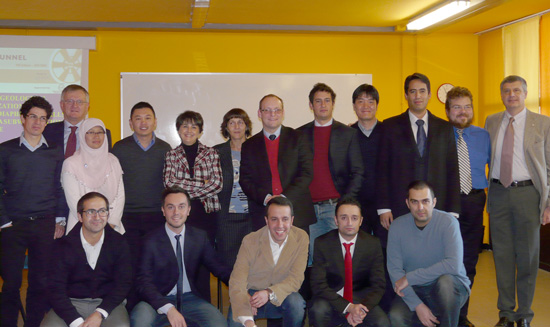
The lectures were given by an international panel of more than 50 teachers coming from Universities, construction companies, public administrations and machine construction companies .
All the hosting bodies expressed a great satisfaction for the work done by the students and the thesis were of high quality.
This VIII edition of the course was supported by the following Golden sponsors: Geodata (Italy), Mapei SpA, Atlas Copco , Officine Maccaferri, Autostrade per l’Italia, GTT, Infrato and by the following sponsors: Cifa, Geotunnel, Ghella, Herrenknecht, Robbins, Sandvik, Pizzarotti, Tunnel Consult, Zitron.
Scholarships to cover the tuition fee were offered by ITACET Foundation, Italian Tunnelling Society, Geodata, Maccaferri and Autostrade per l’Italia .
The satisfying result for this editions is a good omen for the new IX edition that will take place at Politecnico di Torino starting in November 2013.
More information about the master and the thesis of the students are available on the Politecnico’s website :
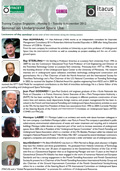
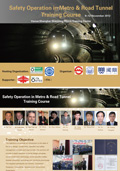
Following the success of the 2011 Training session on Safety Operation in Metro and Road Tunnels, the Shanghai Society of Civil Engineering asked the Foundation to organise November 9-13 2012 a new training session on the same topic.
During the three days that lasted the seminar, ten lecturers provided an introduction to the state of the art in design, construction, operation and safety management of metro and road tunnels.
The seminar, supported by Tongji University, China Civil Engineering Society and ITA-AITES, provided in-depth sessions on tunnel design principles, tunnel construction technology, tunnel operation safety, disaster prevention technology and monitoring technology.
More than 200 participants, owners, contractors, designers, consultants, operators and government supervisors attended a successfull training session.

L. to R on the picture; Messrs . Bai Yun, Niels Peter Høj and Andre Assis.
The program of the event is available to download (Pdf) >>
Second announcement of the seminar (Pdf)>>
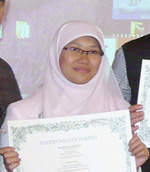
Mrs Maharani Farida from Indonesia obtained in 2011 a 5000 euro grant by the Foundation.
She presented her final discussion on "Settlements Evaluation and Pre-Existing Structures Risk Assessment for an Urban Tunnel Driven with Mechanized Technique (EPB-TBM): Case Study of Delhi MRTS Project of Phase III Contract CC-04" in september.
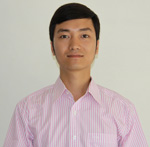 M. NGUYEN Manh Ha was awarded a scholarship of 5000 euro in June 2012 and started this October the "Mastère Spécialisé" on Tunnels et Ouvrages Souterrains of INSA/ENTPE in Lyon.
M. NGUYEN Manh Ha was awarded a scholarship of 5000 euro in June 2012 and started this October the "Mastère Spécialisé" on Tunnels et Ouvrages Souterrains of INSA/ENTPE in Lyon.
M. Nguyen graduated in 2006 from the "École Supérieure de Communication et de Transport" in Hanoi. After this post graduate formation in Lyon he would like to work in his country to contribute to the development and construction of tunnels, in particular to improve transport infrastructure and networks.
 RISK MANAGEMENT DURING DESIGN AND CONSTRUCTION
RISK MANAGEMENT DURING DESIGN AND CONSTRUCTION
Safety In Urban Transport Tunnels
Riyadh – Kingdom of Saudi Arabia. 3-4 February 2013
At the request of the Riyadh municipality, with participation of deleguates of IRF, the International Road Federation and PIARC, the World Road Association.

2-3 May 2013
 IMMERSED TUNNELS.
IMMERSED TUNNELS.
Porec, Croatia, 9 May 2013
At the request of the Croatian Association for Tunnels and Underground Structures (ITA Nation Member).
This training session will be held on the occasion of the "Symposium on Tunnelling in Mediterranean Region".
 WTC 2013 - GROUND IMPROVEMENT, PRE-SUPPORT AND REINFORCEMENT METHODS
WTC 2013 - GROUND IMPROVEMENT, PRE-SUPPORT AND REINFORCEMENT METHODS
Geneva, Switzerland, 31 May, 1 June 2013.
Registration are open:
- standard fee: CHF 360.–
- reduced fee for students: CHF 180.–
Online registration and more information about the course and the WTC2013 on the website of the event wtc2013.ch >>

